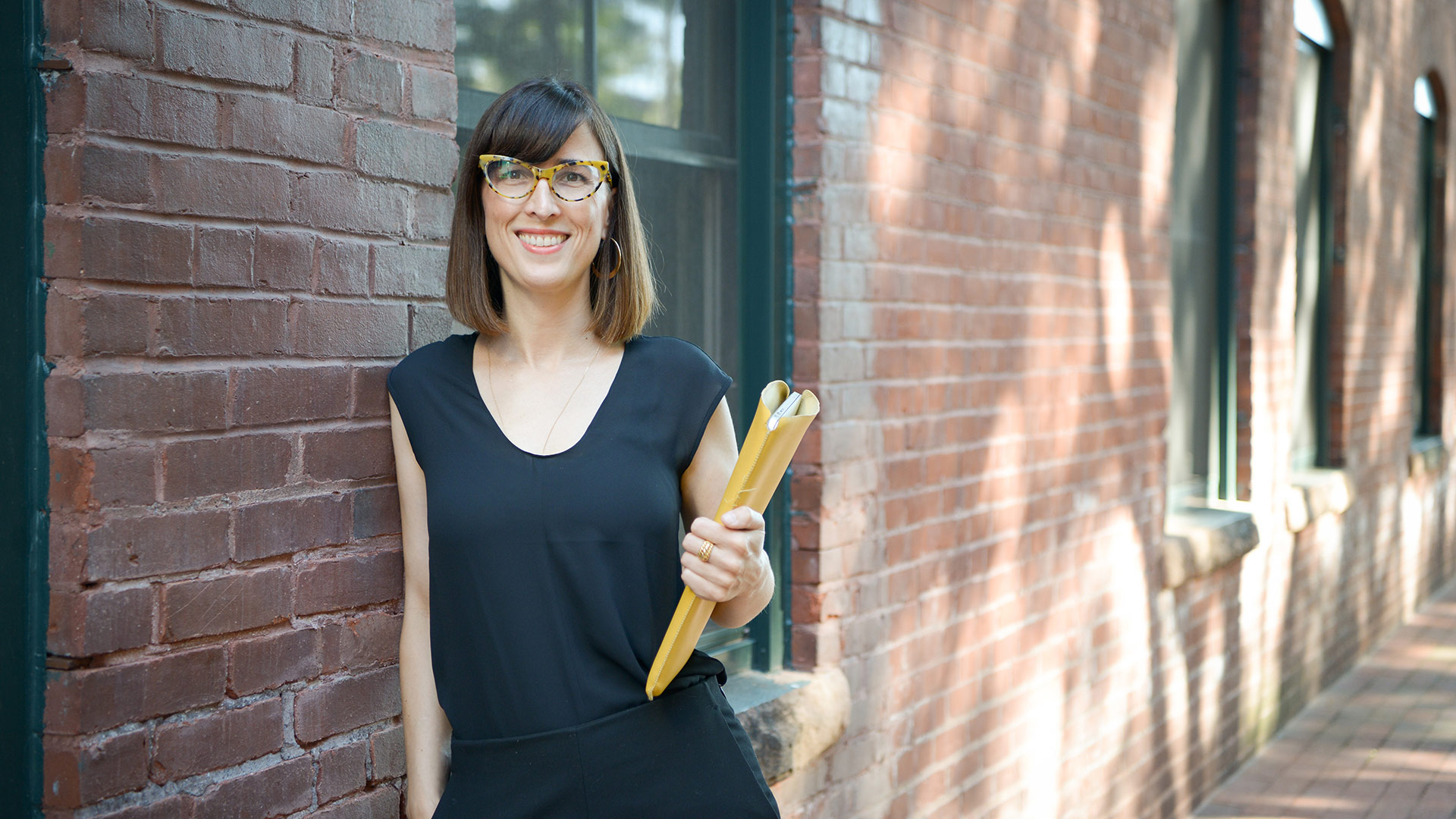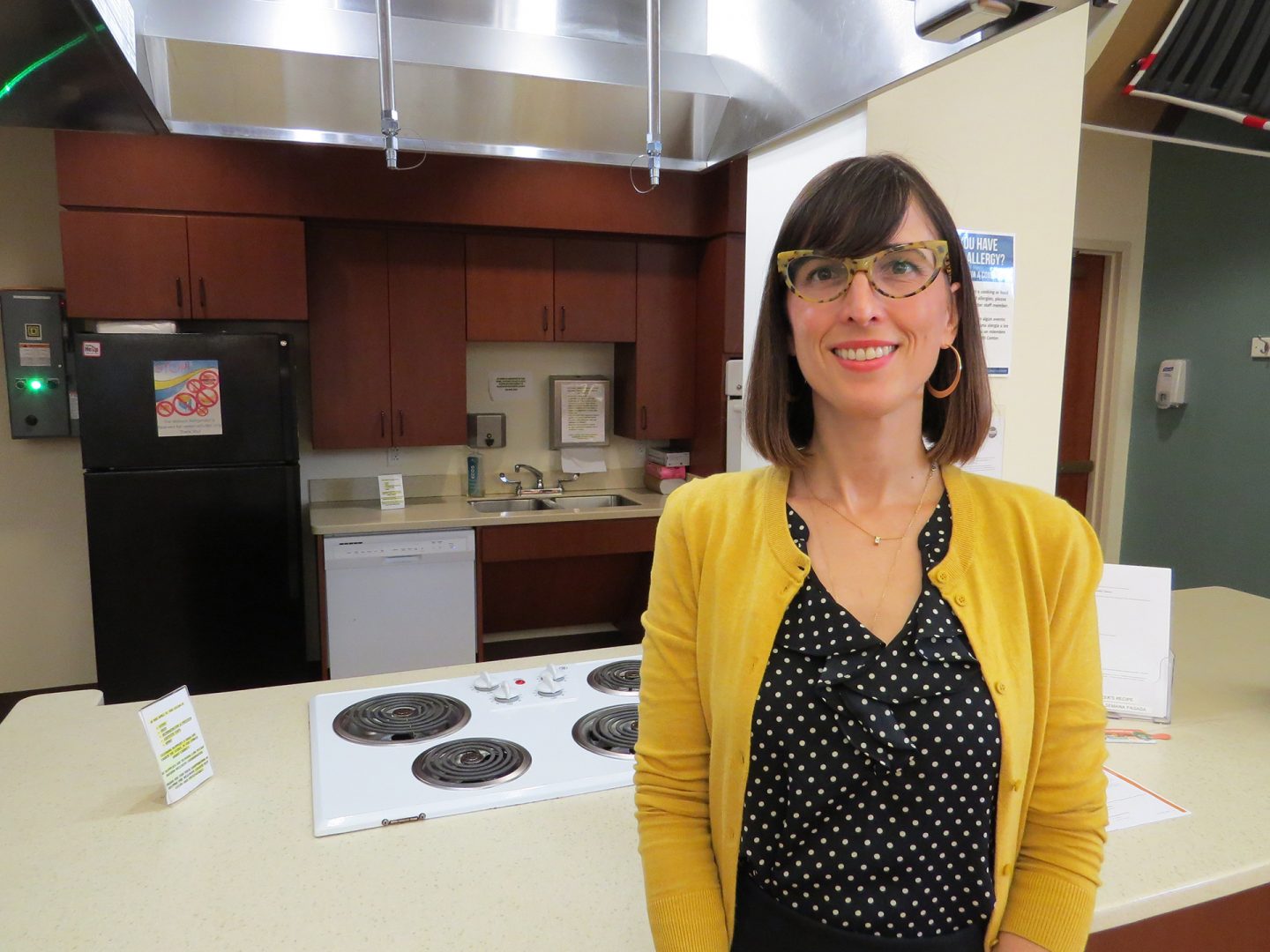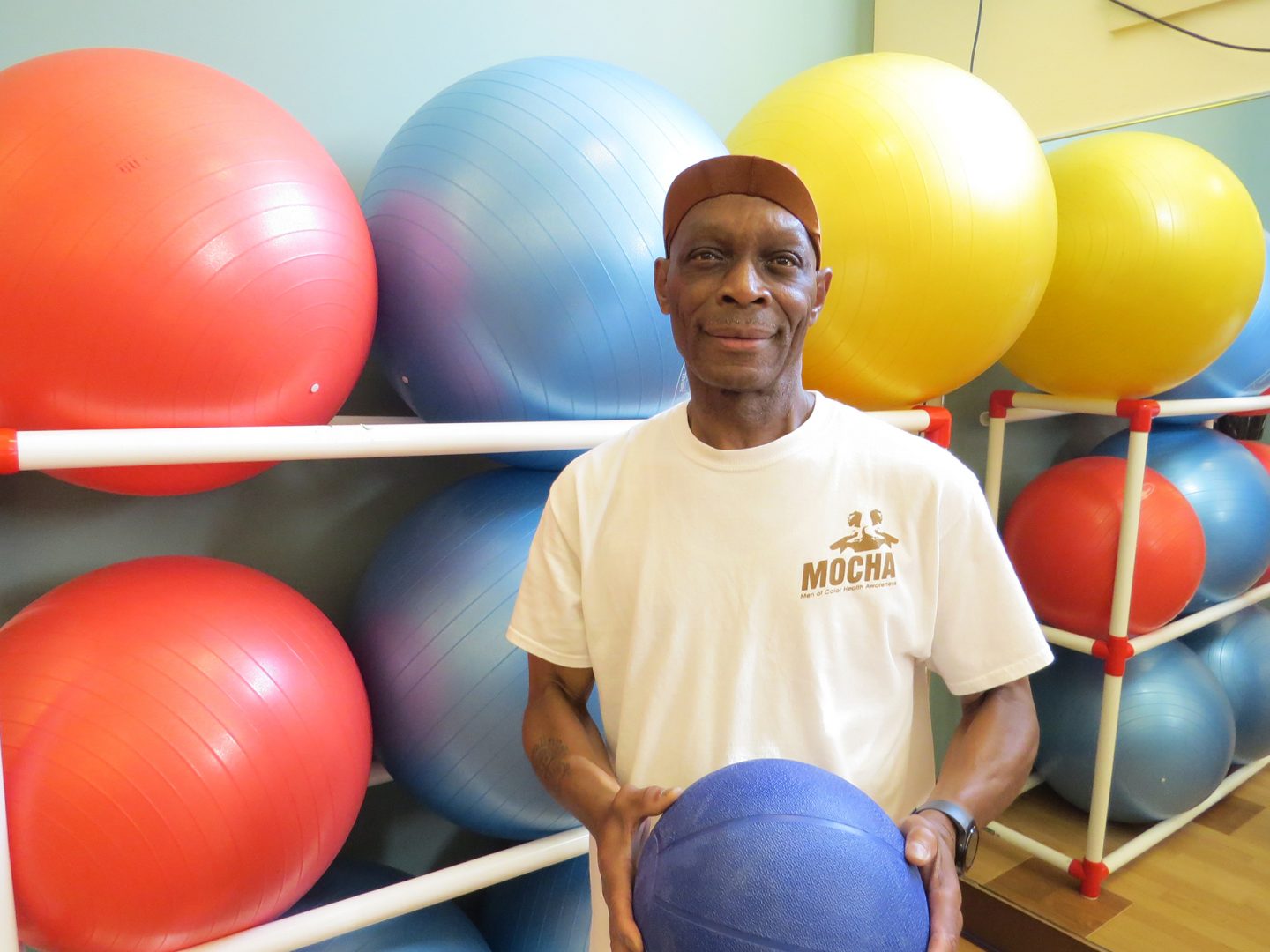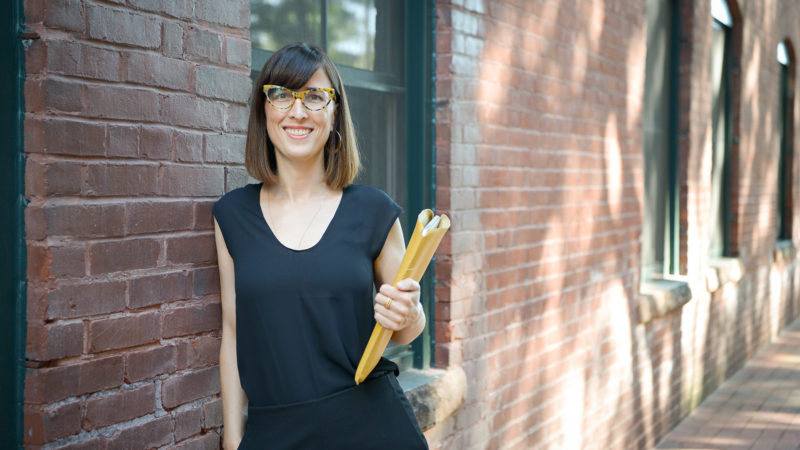Cristina Huebner Torres, Ph.D.
This Leader Is Focused on Dismantling the Barriers That Limit One’s Ability to Thrive

Dr. Cristina Huebner Torres was moving into a new home a little while back, and during the unpacking process happened to come across the essay she wrote while applying for entry to New York University for her master’s degree.
Re-reading it gave her the feeling that, career-wise, she really was doing exactly what she knew she always wanted to do. Well, sort of.
“I have always had a goal of creating a multi-cultural wellness center where people explore their health, bodies, creativity, minds and their holistic self through integrating movement, art, nutrition and other forms of … biomedical and traditional medicine,” she said, quoting from the essay, adding that at the time her work was largely focused on women and women’s reproductive health.
As things worked out, as vice president of Research & Population Health for the Caring Health Center (CHC) in Springfield, she’s working with a much larger constituency — and a much broader range of health matters. And rather than just ‘having a career’ at this facility, she has assumed a pivotal leadership role in efforts to not only study the many and persistent social determinants of health — such things as poverty, food insecurity, inadequate housing, crime, lack of transportation, and more — but doing something about them.
Her ongoing work has earned her the 2019 Healthcare Heroes award in the highly competitive category called ‘Innovation in Healthcare and Wellness.’
Huebner Torres has helped develop and administer a number of initiatives designed to improve the overall health and well-being of the generally underserved population that comes to the Caring Health Center, including creation of its Wellness Center.
Opened a decade ago — a significant milestone, to be sure — this facility lives up to its name and is a unique, innovative addition to a federally qualified community health center. It includes both a fitness center and a full kitchen, where individuals (generally referred to as patients, but also clients) can learn about general nutrition and how to prepare healthy meals for their families.
“After conducting a year and half of focus groups with community and patients, we found that the community was asking for a place where they could engage in group-based exercise, that was cost-free, culturally tailored, taught by someone who was licensed or trained in the area, and located within primary care,” she said, adding that the Wellness Center was developed to meet these community-identified needs.
“She is steadfast in her belief that services that are respectful of gender and sexual identity, widely accessible, culturally tailored, and based on the individual strengths and interests of the patient stand the best chance of bringing about long-lasting health.”
Huebner Torres said there are many ways to qualify and quantify the impact of the many facets of her work, and especially the wellness center, on the overall health and well-being of those served by the CHC. And she’s currently working to attain grants to help with this measuring process. But she believes there is already ample evidence that the center and other initiatives are helping to support patients actively engaged in their wellness.
And all of this is embodied — figuratively, but also quite literally — in an individual who asked to be identified only as ‘Lamont.’
He started coming to the wellness center the first day it opened, not long after his cancer surgery and when Huebner Torres was leading the fitness classes. Today, he leads several classes himself, helping a wide range of individuals with stretching, cardio exercises, and more.
He said these classes are doing what they did for him back when he first started.
“I had lost quite a bit of weight and wasn’t in very good shape,” he said, referring to the impact of the cancer medication. “I told my doctor, ‘I don’t want to stay home, I don’t want to deteriorate, I want to do everything possible that I can to get healthy.”
Many of those he’s now instructing arrive with a similar attitude, and this is exactly what Huebner Torres had in mind when she conceptualized the facility.
Her work, and her approach to it, is best summed up in this summation in the nomination submitted by CHC’s president and CEO, Tania Barber:
“Cristina’s core values and goals are informed by her belief that people are healthier when they feel safe and respected, eat nutritious foods, have opportunities for regular exercise, are knowledgeable about health and well-being, openly celebrate their cultural traditions, and receive services in their own language,” she wrote. “Her work is focused on dismantling the barriers that limit each person’s ability to thrive, both in the community at large as well as the healthcare setting, increasing access to community and social support, addressing structural bias, and promoting peer-led models are important aspects of her approach. She is steadfast in her belief that services that are respectful of gender and sexual identity, widely accessible, culturally tailored, and based on the individual strengths and interests of the patient stand the best chance of bringing about long-lasting health.”
Stress Test
As she talked about her work at the Caring Health Center, especially in the broad realm of the social determinants of health, Huebner Torres honed in on the subject of stress.
More specifically, she talked about how those who come to the CHC combat what would have to be considered a different, more virulent strain of stress.
“We’re not talking about a morning being stressful because you had some extra traffic on your daily commute,” she explained. “We’re talking about not having sufficient food every day for you and your family, and not having sufficient housing for you and your family, or many of those things co-occurring, and the effects of that over time.”
One might say researching this higher level of stress — resulting from those aforementioned social determinants of health — and doing something about it have become Huebner Torres’s life’s work.
As she noted, it was essentially her life’s ambition and she went on to earn a bachelor’s degree in Medical Anthropology from Mount Holyoke College, while also focusing on modern dance. She earned a master’s degree in somatic studies from New York University, and her doctorate in Epidemiology at the UMass School of Public Health and Health Sciences.

Building on her undergraduate and master’s studies, she focused her doctorate in social epidemiology on the social determinants of chronic disease management. Her work considers the role of food insecurity and social stressors on the ability to prevent or manage diseases like diabetes and hypertension within community health center settings. She started her career at the Hispanic Health Council in Hartford, where she also interned while in college.
“This was an applied-research environment in a community-based setting, and it really set the stage for my career,” she told BusinessWest, “because I’ve been a community-based investigator, meaning that I find ways to create and partner in opportunities for conducting research within a public health practice and applied framework.
“It’s research driven by emerging trends within the community,” she went on, “and we use that research to inform opportunities for intervention that are culturally and community informed and making sure those interventions are actionable and integrated and sustainable.”
This explanation sums up her job description at the CHC, which she came to in 2007 as director of Research and Wellness. Since opening in 1995, the CHC has become the preferred health provider in Springfield serving a population that is diverse and challenged in many ways. Indeed, 70% of the more than 21,000 are Medicaid beneficiaries and the majority have one or more chronic illnesses. Nearly half of the patients speak languages other than English, and most live with medically complex conditions, often comprised of two or more chronic diseases, such as diabetes, hypertension, emphysema, heart disease, viral hepatitis, and chronic pain. And many patients also navigate behavioral-health conditions such as bipolar disorder, schizophrenia, depression, anxiety, post-traumatic stress disorder, or engage in opioid, alcohol, or other substance abuse.
The culturally diverse population served by CHC has many strengths as well as complex needs, and in her time at the CHC, Huebner Torres has collaboratively led the development of a number of services and programs to address them. These include an award-winning community health worker program that addresses the social determinants of health, as well as writing the grant to integrate the behavioral-health department with staffing and innovative programming to meet the culturally and linguistically diverse needs of refugee and immigrant individuals and families, and to support patients navigating multiple chronic co-morbidities.
Each of these innovations has been supported by leadership at CHC, she went on, and are sustained by a “tremendous collaborative team of dedicated and talented staff at CHC.”
The Shape of Things to Come
As she led BusinessWest on a tour of the Wellness Center, Huebner Torres started in the Wellness Center teaching kitchen.
There, she said, the center provides both nutrition education and cooking demonstrations, such as the very popular “Ask and Cook with the Dietitian!” sessions staged every Thursday by CHC’s registered dietician Vela Nicasio.
The kitchen-focused programs are designed to support patients as they look to follow primary-care treatment plans and recommendations for dietary improvements. The same is true of the workout facilities, which feature a number of cardio machines, weights, and large spaces for group classes in ‘stretching and restoring,’ cardio fitness, and open wellness (including one for women only).

The foundation of all that takes place in the center is the acronym CLAS, which stands for culturally and linguistically appropriate services, said Huebner Torres.
“It’s in the mission of what we do; it’s the heart of what the Caring Health Center does,” she explained, adding that the underlying goal behind creation of the center was to create a place where everyone could exercise and feel comfortable, including populations that just didn’t have such a space.
As an example, Huebner Torres listed Muslim women.
“They didn’t have a place to go because that place couldn’t include men, and it needed to not include music,” she explained. “And if you walk into any gym environment, there’s men and music. So early on, we created a Muslim-women-only exercise class, and it’s the first and only one in this area that we’re aware of.”
That class eventually became simply a women-only class because the Muslim women decided to open it to all women, she went on, adding that, overall, these classes and other programs are designed to help patients deal with health issues, but also the enormous amounts of stress they face in their lives — and do so in a group setting where they can interface with others facing similar challenges.
“A huge part of what people said they wanted in a center like this was for it to be group-based, and I think the concept of social support and social engagement, for many patients, becomes the number-one driving factor in why to attend,” she explained. “It’s not about ‘did I lose a pound or 10 pounds in so much time’; instead, it’s about ‘I was able to join in with other people like me and with some leadership that cares. And it was fun, I learned something, and I was engaging with people.’”
In short, the center and its programs are designed to educate and inspire commitment to getting healthy and staying healthy.
Which brings us back to Lamont.
“I started going to the wellness center once or twice a week, and I could really see myself making changes in my health,” he recalled, returning to the days and weeks after his cancer surgery. “I started to regain some strength and stamina, and from there I took it to another level; I started getting out to the park and running three or four miles a day, every other day. And I started working out at the wellness center four times a week.”
As he continued to grow stronger health-wise and become a role model, Lamont was advised by his doctor to become involved with a movement known as MOCHA — Men of Color Health Awareness, a name that goes a long way toward explaining what it is and does.
“Men of color have issues with going to the doctor and talking to the doctor, and that’s why a lot of us are dying today,” he said, adding that, as part of his participation in MOCHA, he gave a speech on this subject on the steps of Springfield City Hall.
He credits the Caring Health Center with saving his life when he had cancer, and now he gives back to the center through his role as a certified group exercise instructor and overall work to help others become actively engaged in their health and wellness.
“When it comes to stress, nutrition, getting off the couch and working out two or three times a week … all these things I learned from here,” he said, referring to the CHC and its wellness center. “I learned how to be proactive in talking to my doctor when things are going on and having a conversation.”
From a big-picture, community-health perspective, this is exactly what Huebner Torres had in mind when she blueprinted the Wellness Center a decade ago based on community and patient input.
Practicing Patience
In nominating Huebner Torres as a Healthcare Hero for innovation, Barber listed a number of attributes, all quite necessary for this kind of work.
For example, “Cristina demonstrates respect, consistency, and graciousness toward everyone she encounters. She listens well, speaks directly and honestly, and displays a quiet, well-timed sense of humor … she is intelligent, patient, and calm under pressure, and widely admired by those around her.”
When asked which of these is perhaps her strongest trait, Huebner Torres didn’t hesitate in saying ‘patience,’ adding that it’s more than a virtue when dealing with the complex issues she addresses every day — it’s a necessity.
“The other key factor — and perhaps most important of all — is partnership,” she said. “All of these initiatives are innovative and successful because of the team at CHC, the community, the patients, partner organizations and investigators, and the funders who have supported our efforts.”
“Nothing happens overnight — you have to be able to stick with it over time,” she went on.
Throughout her career, she has shown an ability to do just that, and the nutrition classes and group workout sessions at the Wellness Center are evidence that, when you do stick with it, you can bring about positive change in the lives of individuals — and in a community.
George O’Brien can be reached at obrien@businesswest.com

